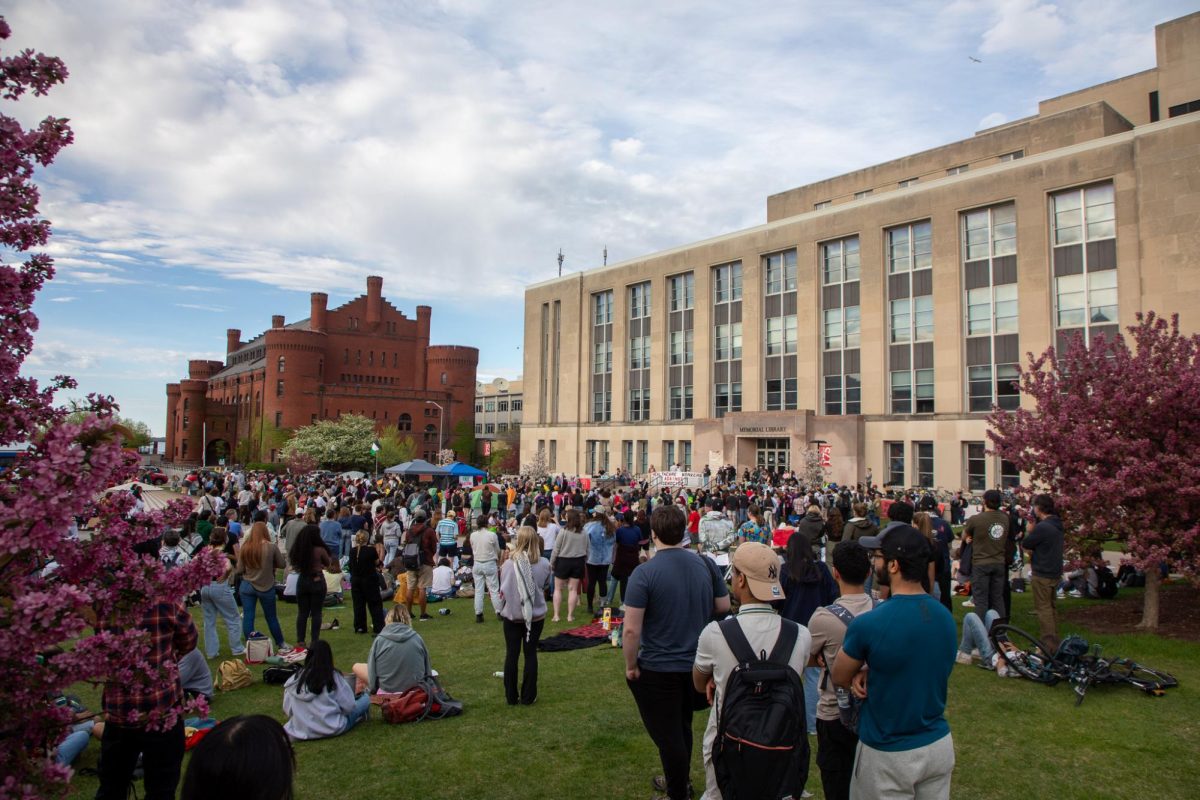This winter, approximately 2,000 University of Wisconsin students will graduate, entering an uncertain economy and faltering job market.
UW-Madison alumnus and Associated Press senior vice president Jonathan Wolman will speak at both commencement ceremonies to be held at the Kohl Center at 10 a.m. and 2 p.m. Sunday, Dec. 22.
Wolman has been chosen to lead Commencement Day, offering students a glimpse into life after college.
“I’m sure they are pumped up about their upcoming transitions but anxious about the job market, looming war clouds and threats to security,” Wolman said.
Because of the shaky economy, many individuals with undergraduate degrees will find a hard time landing a well-paying job.
According to a spring 2002 survey conducted by the National Association of Colleges and Employers, companies estimated that they would hire 36.5 percent fewer graduating seniors this year than last.
To survive the volatile job market and stay on par with the increasing demands of employers, many students said they believe a graduate or professional degree will give them the competitive edge to compete in today’s market.
Judith Kornblatt, intern associate dean for graduate education, said there was a more than 11 percent increase in applications to the graduate school for fall 2002.
“We speculate that the state of the economy does have an effect on graduate admissions,” Kornblatt said. “It is possible that students are delaying their entrance into the work force when the employment prospects are not good. It is also possible that students feel that a higher degree will improve their chances in a tight job market.”
Despite the significant increase in graduate applications, UW only increased the number of admissions by 5.5 percent, thus making admission more selective than years previous.
Beth Kransberger, dean of admissions for the UW law school, said the yield rates for fall 2002 were far off from their historical levels.
“Applications were up about 18 percent over the prior year, with applications being up on average about 17 percent across the country,” Kransberger said.
Kransberger attributes the rise in applicants to a number of factors.
“There was certainly a desire to avoid the economy, but also a sense that post-September 11, folks no longer wanted to put off dreams and long-term goals — a real desire to live for today and seize the moment,” she said.
“It is also generally understood that a weak or unstable economy is good for professional school and graduate admissions, as people feel the need to make themselves more marketable and to create more and better choices for themselves,” Kransberger added.
For fall 2003, Kransberger estimates an even higher yield rate than in 2002.
“Here at the law school, we have 400 more applications at this time than we did last year. Obviously, we will not know until February 1, the close of our application period, whether this will translate into a higher number overall for the year,” she said.











